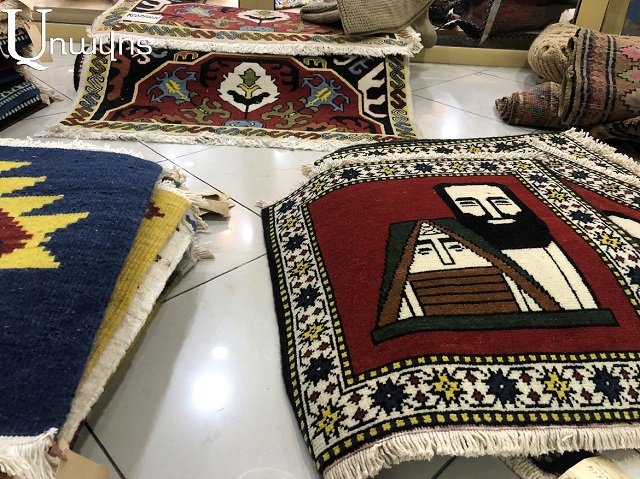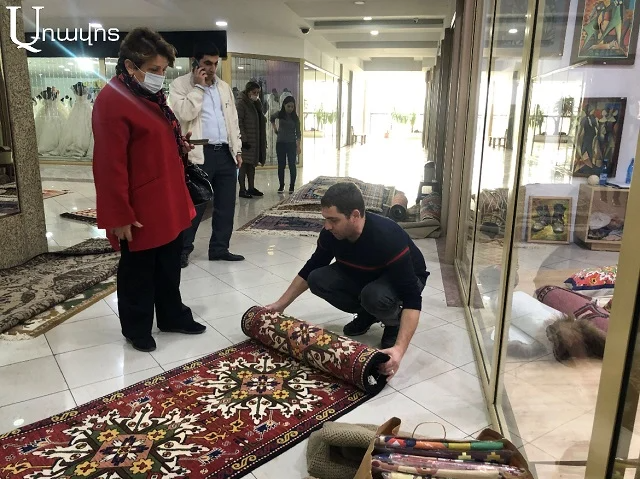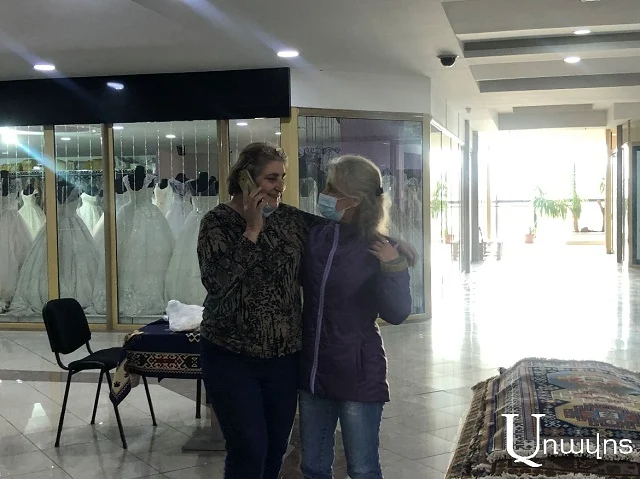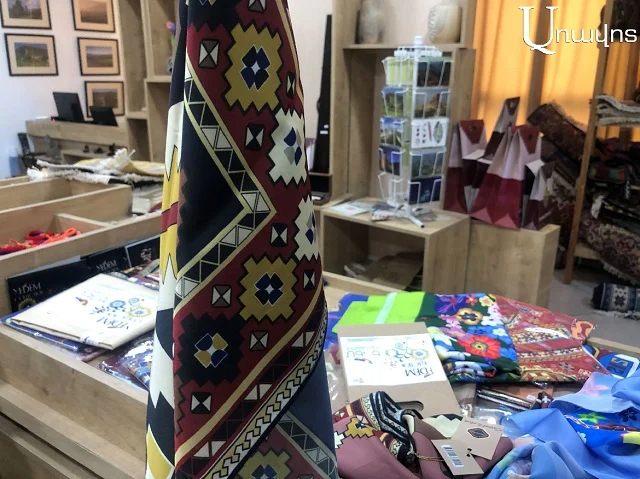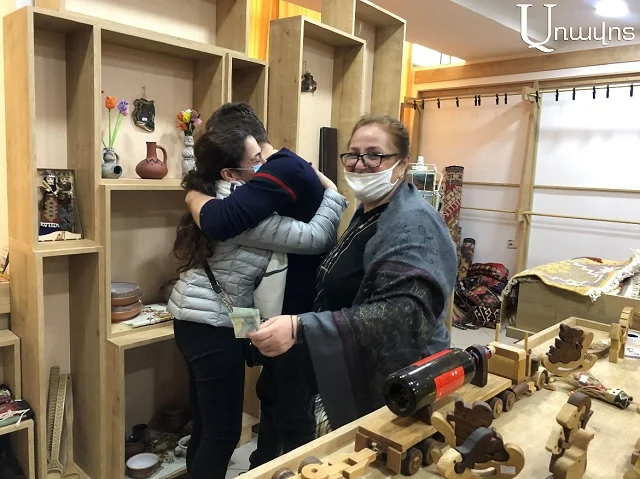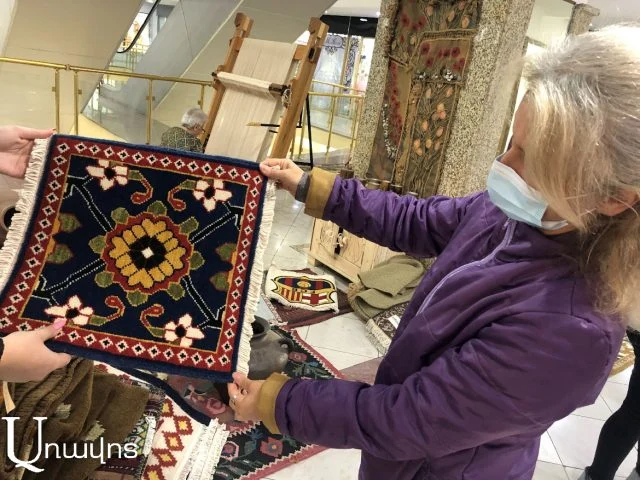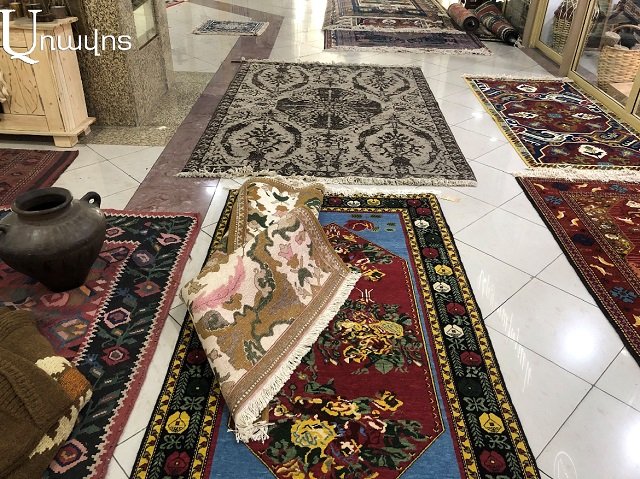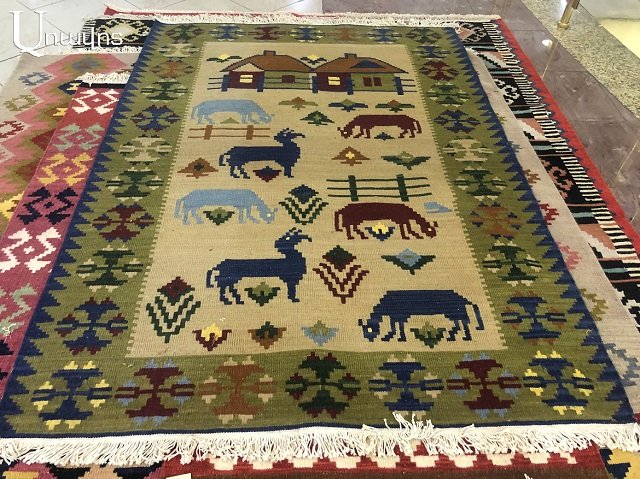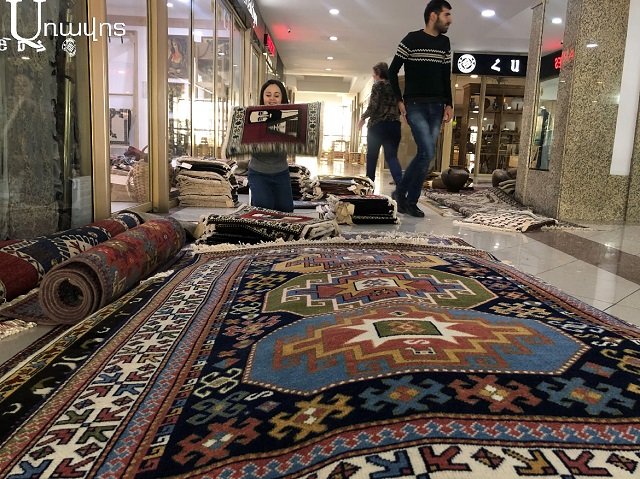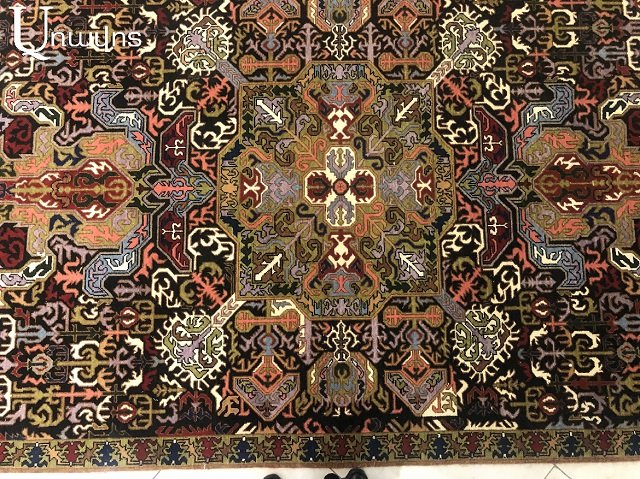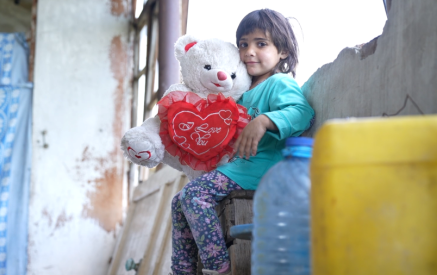The ‘Artsakhyan’ vendor, which has been operating in Yerevan since 2018, has been very crowded over the past few days, more so than it has been in the past few years. The employees said that they did not have as many visitors before. The demand for Karabakh Carpet’s rugs, carpets, silk scarves, and tablecloths has increased after the fall of Shushi.
Several rugs and carpets were brought to the vendor from the Stepanakert warehouse. Sveta, Hasmik, and Elena, who are employees at the vendor, and Sevak, the company’s director, are extremely busy. They are organizing the carpets, registering them, and hanging them on the display cases. At the same time, they manage to take care of customers. Hasmik called her son in the midst of all of this and learned the good news that he is coming home. He had signed up as a volunteer in the first days of the war.
Read also
The rugs, tablecloths, and scarves are so colorful and beautiful that visitors are unable to decide which one to purchase. It is difficult to decide, but customers definitely make sure to purchase something.
Carpetmakers from Artsakh were coming to the vendor to receive their salaries. As a result of the sales in Yerevan, the company has started paying its employees their salaries from September. Despite the fact that they did not work in October, they will receive some compensation anyway. The carpetmakers all missed one another. They hugged and cried.
All of Karabakh Carpet’s productions are completely handmade. The rugs all have ancient Armenian designs: the Dragon Rug, the Eagle Rug, Khndzoresk, Dizak, Astghazard, Gardman, Gandzak, Shushi, Ishkhanatun, Tigranakert, and others. The company began operating in Shushi, which is where the first factory was opened. The company also opened branches in five of Artsakh’s regions. Everything was left behind in Shushi. The director of the company, Sevak Khachatryan, told Aravot Daily in an interview that everything, including the factory’s property, raw materials, and incomplete rugs remained in Shushi. “We left behind 32 machines in Shushi, one of which held a rug that was worth around $10,000. We had many orders in Shushi from other countries. We had almost completed our work. We had orders from Russia, Norway, Switzerland, and Austria. We were supposed to send them near New Year’s, but we didn’t make it.”
Khachatryan did not speak about the losses. He said, “When Shushi fell, we all were shocked. We lost so much with the loss of Shushi that I do not even want to speak about our private company’s losses.” He did not even have time to calculate it. Khachatryan said that Stepanakert was being shelled several times a day, and he was thinking about taking everything to Shushi since the fortress city was invincible. It was the safest place at the time. He was glad that he didn’t.
The rugs are being sold at a sale price. The company was able to pay the majority of its employees’ salaries through the profits. However, it needs to sell even more to pay off the other portion. A portion of sales will be sent to the soldiers’ fund, which is how the employees plan on expressing their gratitude to the soldiers.
Nelly Babayan



















































